As an English major, you’ll develop critical thinking, writing and reading skills – skills that are vital to success in any profession and to being an engaged and informed citizen.
The Department of English
The Department of English teaches students the conscientious use of language through reading and critical discussion of literary texts as well as through intensive study of a variety of writing genres, both traditional and digital. Faculty foster intellectual curiosity by encouraging students to work and think beyond their local contexts. Courses at NCWU stress that critical inquiry—whether in the form of reading, writing or discussion—does not end on the last day of classes, but that it is a relevant and urgent mindset extending into every aspect of our lives.
The English major develops critical thinking, writing and reading skills necessary for success in any field. A core liberal arts discipline, English provides rigorous instruction in traditional and multimedia composition, close reading and analytical thinking, while promoting a commitment to lifelong learning. All English classes beyond the first year are small and conducted in a seminar format to encourage sustained intellectual exchanges between students and faculty.
The Department of English invites students to pursue their specific interests by offering a variety of major and minor options:
- English Major & Minor: Both the general major and minor emphasize reading and writing about literature from a wide range of historical and cultural contexts. You may also take courses associated with the other minors in the department.
- Writing Minor: The writing minor emphasizes traditional and digital writing across genres and academic disciplines.
- Journalism Minor: The journalism minor emphasizes writing for and production of news media.
Our students pursue careers in education, law, journalism, public relations, advertising, marketing, federal and state government services, and social work.
Humanities Resources
Faculty & Staff
The Department of English is one of the largest at North Carolina Wesleyan University. Our faculty are experts in many areas of English literary and writing studies, including American and British literature, critical theory, cultural studies, digital rhetoric, journalism, professional, technical and creative writing, as well as English as Second Language.
We are an active and engaged department. Our faculty believe that teaching and advising are at the core of our professional identities. Moreover, as scholars and authors, we also publish books and scholarly articles, present our work at conferences, conduct research and continue to learn as part of a community of like-minded colleagues and students. The close professional ties that are forged between students and faculty crucially enhance the study of English at North Carolina Wesleyan.
Email any of our advisors with any questions you have about completing this program.
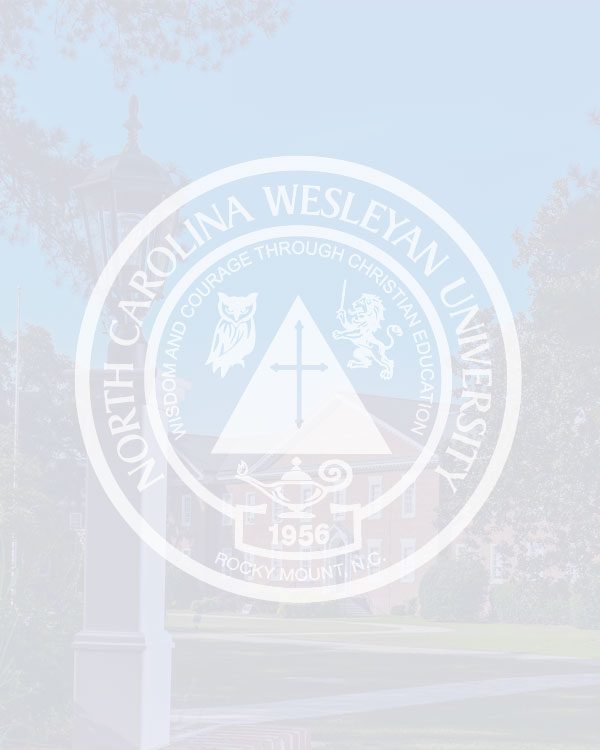
Jim Bowers, Ph.D.
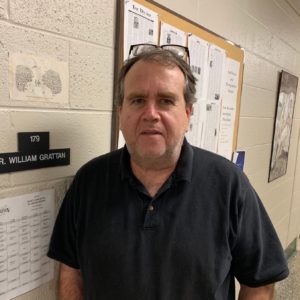
Bill Grattan, Ph.D.
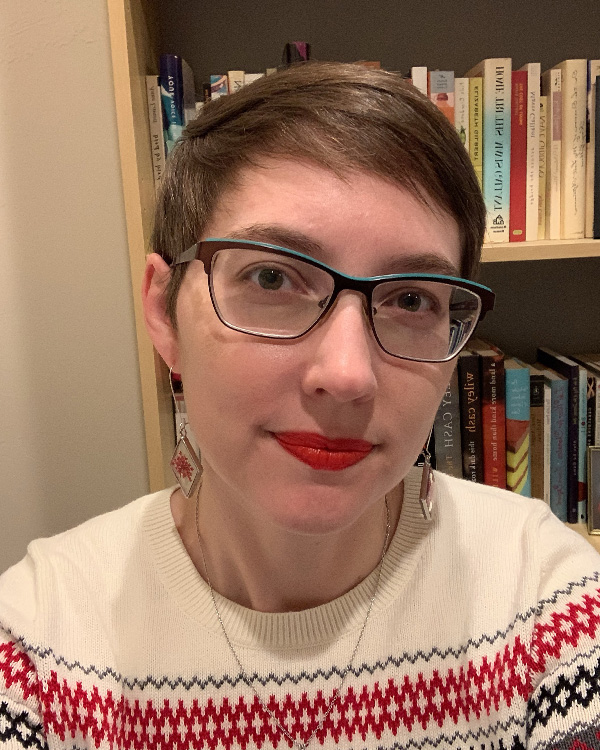
Margaret Love, Ph.D.
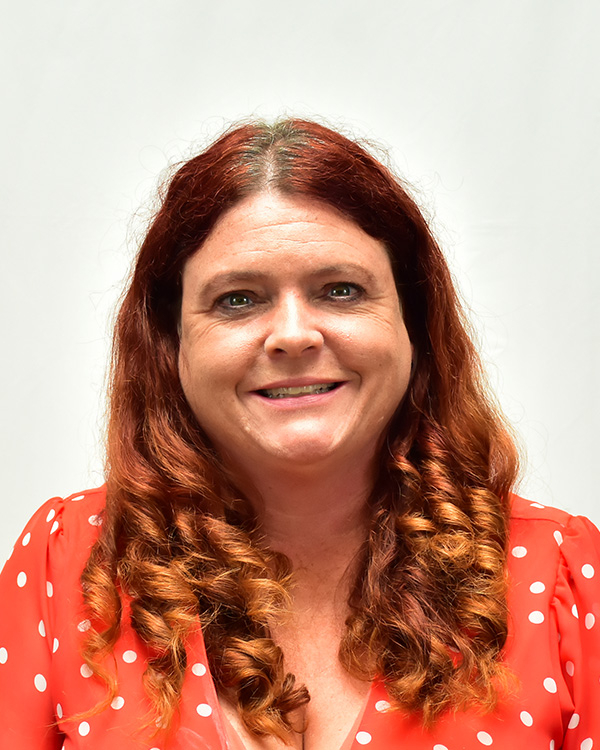
Jamie Hathaway Pollard, M.Ed.
Lee Templeton, Ph.D.
Professor of English & Chair of the School of Humanities
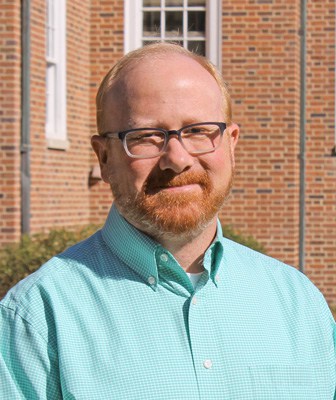
Lee Templeton, Ph.D.
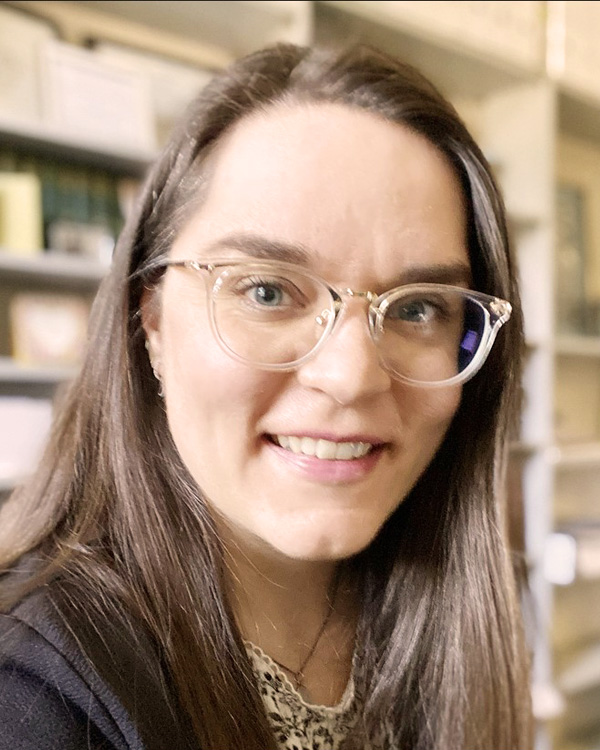
Doreen Thierauf, Ph.D.
English Program Overview
English Major
The English Major encourages students to explore literature across historical and cultural contexts through survey courses and specialized seminars. Themed classes allow a closer look at specific authors and genres. Students in the major also have the opportunity to hone their professional and creative writing skills through writing and journalism courses. The major emphasizes close reading, critical thinking, and creative problem-solving.
Earning a Bachelor of Arts degree requires:
- Two of the three sequenced survey courses (World Literature I & II; Literature of the United States I & II; British Literature I & II, Black Literatures & Social Issues in Contemporary Literature) OR Study in a Genre and two courses from one sequence plus one course from a second sequence (12 semester hours)
- Two courses from Studies in British Literature before 1700, Studies in British Literature after 1700, Studies in American Literature, Studies in Contemporary Literature
- One course from Studies in International Literature, African American Literature, or Gender Studies
- English Studies: Research, Writing, and Critical Methodologies
- One course from Shakespeare or Major Author
- One course from Advanced Writing or Creative Writing
- One course from History of the English Language, Children’s Literature, Systems of Grammar and Senior Seminar (36 semester hours)
English Minor
The English Minor provides students from other academic departments the ability to acquire the humanistic and analytical skills of the traditional English major and apply them to their chosen field of study.
Minor Requirements
- Two courses from World Literature I & II, Literature of the United States I & II, British Literature I & II, Black Literatures & Social Issues in Contemporary Literature, and Study in a Genre
- One additional course from Introduction to Literature, World Literature I & II, Literature of the United States I & II, British Literature I & II, Black Literatures & Social Issues in Contemporary Literature, and Study in a Genre
- One course from Advanced Writing or Creative Writing
- Two courses from 300-400 level English courses, not including ENG 304 Business Communication (18 semester hours)
Writing Minor
The Writing Minor teaches the theories and practice of writing across professional genres. Students learn the effective use of rhetoric to adapt their work to specific contexts and audiences and master the design of traditional, digital, and multimodal texts. They will be prepared to meet the shortage of good writers in many fields such as the arts, business, government, education, science, technology, and publishing.
Writing Minor Requirements
- Advanced Writing, Professional Writing, Writing and Rhetoric, The Writing Portfolio
- One course from Multimedia Writing or Writing for New Media
- One course from Journalism, Business Communication or Creative Writing (18 semester hours)
Journalism Minor
The Journalism Minor introduces students to reporting, writing, and editing for publication or broadcast. Students practice editorial, investigative, feature, sports, and travel writing, and learn the intricacies of copy layout. The minor is connected to the college’s student newspaper, The Decree, which offers students opportunities to contribute to the publication.
Journalism Minor Requirements
- Journalism, Editorial Techniques, Advanced Writing, Advanced Journalism and six semester hours of 300-400 level English courses (18 semester hours)
What are the courses like in the English major at NCWU?
Check out our latest university catalog for learning goals, course descriptions and suggested plans of study for NC Wesleyan University’s English Program.
First-Year Composition
ENG 090, ENG 111 and ENG 112 are part of a required composition sequence for all North Carolina Wesleyan University students. These courses ensure that our students are familiar with the expectations for academic writing at the college level. Incoming freshmen will be placed into ENG 090 or ENG 111 based on their high school GPA and SAT (or ACT) scores. Students who want to contest their placement must take the Placement Test created by the Department of English before the start of their first semester.

Here are some highlighted courses included in the English Major:
Recent Offerings in Literature & Writing
Each semester the Department of English offers a different slate of literature and writing courses. Below you will find descriptions for some of the courses taught in the last few years. Please visit the North Carolina Wesleyan University Course Catalog for a complete list of our offerings.
ENG 206 British Literature II: From Empire to Brexit
(offered every Spring, Dr. Doreen Thierauf)
Prerequisite: ENG 112
This course explores the British Empire during its expansion in the 19th century, its collapse in the mid-20th century, and its effects on British self-identification today. We survey Britain’s role in this first true age of globalization and trace how the period’s literature reflects the Empire’s acquisitive ethos. By studying fiction, poetry, essays and speeches from the past 200 years, we will begin to grasp how the British Empire represented the endlessly diverse peoples under its rule to itself and how its cultural productions created assumptions about the world which Britain has not entirely shaken off today. Texts covered include The History of Mary Prince, Jane Eyre, and Wide Sargasso Sea.
ENG 304 Business Communication
(offered each semester)
Prerequisite: Junior Standing and ENG 112
This course emphasizes the importance of building and maintaining relationships in business through the crafting of professional documents, including memos, business letters, proposals and technical manuals. Students will also be introduced to the ethics of business writing.
ENG 311 Shakespeare
(offered every other Spring, Dr. Lee Templeton)
Prerequisite: Six semester hours from ENG 201, 202, 203, 204, 205, 206
Covering a selection of Shakespeare’s comedies, histories, tragedies, and romances and the political, cultural, and religious contexts in which these works were written, this course offers students the opportunity to become better acquainted with the work of Shakespeare, develop a greater appreciation for his plays as texts for reading and performance, and better understand how those texts engaged with the theatrical, historical, and social tensions of Elizabethan and Jacobean England.
ENG 312 The Medieval Foundations of Tolkien’s World
(offered every other Spring, Dr. Lee Templeton)
Prerequisite: Six semester hours from ENG 201, 202, 203, 204, 205, 206
The literature of the European Middle Ages has had a profound impact on the modern imagination. This influence is nowhere more apparent than in the work of J. R. R. Tolkien. As a medieval scholar, Tolkien edited texts like Sir Gawain and the Green Knight and wrote extensively on Anglo-Saxon and Middle English, drawing on these works for inspiration for his own. This course is designed as a study of some of the medieval texts from which Tolkien drew, as well as the scholarly and fictional work of Tolkien himself, in order to trace the transformation of medieval texts in the popular modern imagination.
ENG 313 Studies in British Literature after 1700: Victorian Monsters
(offered every other Spring, Dr. Doreen Thierauf)
Prerequisite: Six semester hours from ENG 201, 202, 203, 204, 205, 206.
This course considers how the Victorians’ construction of monstrosity reflects their particular historical moment, characterized by industrialization, colonization, and scientific development. Through a critical examination of monsters in literature, we will explore anxieties, fears, and ideals of Victorian society, paying close attention to issues of gender, sexuality, class, race, empire, science, and technology. Texts covered include Wuthering Heights, Strange Case of Dr. Jekyll and Mr. Hyde, Tess of the d’Urbervilles, and Dracula.
ENG 415 Writing and Rhetoric
(offered every other Fall)
Prerequisite: Junior Standing and ENG 112
This course introduces students to the history and theory of rhetoric from Aristotle to LuMing Mao, from the classical to the comparative. Students will delve deeply into the use of rhetorical concepts, analyze the rhetoric of modern genres and media and develop their own expertise through the creation of multimodal projects.
ENG 422 Studies in International Literature: Global Masculinities
(offered every other Fall, Dr. Margaret Love)
Prerequisite: Six semester hours from ENG 201, 202, 203, 204, 205, 206
The novels and poetry we will read in this class present a range of global experiences and expressions of masculinity, though they certainly do not represent the entirety of what might be expressed or experienced under that term. Using this group of texts, we will discuss important topics such as identity, gender expectations/stereotypes, and the relationships between colonialism, racism, migration, and ideas or understandings of masculinity. Authors include Danez Smith, Caleb Azumah Nelson, Mohammed Hanif, Chinua Achebe, and Aimé Césaire.
ENG 423 Studies in Contemporary Literature: The Dystopian Novel
(offered every other Fall, Dr. Doreen Thierauf)
Prerequisite: Six semester hours from ENG 201, 202, 203, 204, 205, 206
This course explores one of the most exciting genres of contemporary prose fiction, the dystopian novel, to familiarize students with its themes, formal structures and historical significance. Be warned, there are no happy endings in this course. Authors covered may include Aldous Huxley, George Orwell, Margaret Atwood, Octavia Butler, Suzanne Collins and others.
ENG 424 African American Literature: Afrofuturism
(offered every other Fall, Dr. Doreen Thierauf)
Prerequisite: Six semester hours from ENG 201, 202, 203, 204, 205, 206
This course analyzes the various ways in which writers, visual artists, musicians, and filmmakers of the African diaspora use Afrofuturism to critique racial injustice in the present and imagine free black futures. Writers covered include Octavia Butler, Ta-Nehisi Coates, N. K. Jemisin, Nnedi Okorafor and many others.
HUM 495H The Viking Age: Literature and Culture (Honors Course)
(scheduling varies, Dr. Lee Templeton)
This course focuses on the culture and literature of the Viking Age – the sagas, romances, Eddic poetry – and reevaluates the stereotypical vision of the Viking. It also examines the influence that Norse religion and culture had on other European literary traditions. We will read these texts closely and discuss them thoroughly, examining issues of socio-economic mobility, gender, religion, and the shifting relationship of the class structure.
Latest English Department Publications
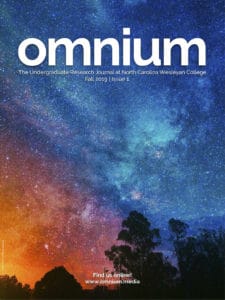 Omnium
Omnium
Omnium: The Undergraduate Research Journal at North Carolina Wesleyan University supports student writing across all disciplines and fields at NCWU. Housed in the Department of English, Omnium invites students of all majors and disciplines to submit their best work for the chance to see their writing published.
For more information, send an email to the editor, Dr. Doreen Thierauf.
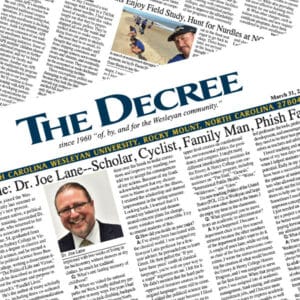 The Decree
The Decree
The Decree, North Carolina Wesleyan University’s student newspaper, was founded in 1960 and serves both the College community and the Rocky Mount area at large.
Students wishing to gain experience in writing, editing, layout, photography, cartooning or management are encouraged to become involved in the production of the student newspaper. In addition to reporting on campus events; profiling students, faculty and staff and following the vibrant local sports scene, The Decree regularly features creative writing, including fiction, poetry and personal essays by students and other members of the College community.
For more information, contact Dr. Bill Grattan.
Visiting Writers’ Series
The Visiting Writers’ Series has been an integral part of the cultural and intellectual life of North Carolina Wesleyan University since the 1960s. Each year, the University invites writers to read from their work and to meet with students.
Past visiting writers have included Nobel Prize winner Derek Walcott, North Carolina Poets Laureate Joseph Bathanti and Shelby Stephenson, as well as the recipients of the National Book Critics Circle Award for fiction and the PEN/Hemingway Award, Reynolds Price and Justin Cronin, respectively. Other visitors to the program have had their work anthologized in Best American Short Stories and Essays, O. Henry Prize Stories, New Stories from the South, and The Pushcart Prize: The Best of the Small Presses, including Allan Gurganus, Karen Bender, Steve Almond, Wendy Brenner, Stuart Dybek and Charles Baxter.
The Visiting Writers’ Series often features writers from North Carolina and from the Black Mountain School and is supported by the Eleanor Hoyt Smith Memorial Reading Fund.
The Eleanor Hoyt Smith Memorial Reading
The family and friends of Eleanor Hoyt Smith wish to honor her memory by staging a memorial reading every other year as part of North Carolina Wesleyan’s Visiting Writers’ Series. Smith, the mother of Professor Emeritus Leverett T. Smith, Jr., the director of the Series between 1976 and 1992, spent the last seven years of her life as an informal member of the College community, interesting herself primarily in the University’s Pearsall Library and in the Visiting Writers’ Series.
Past Participants:
- Karen Bender
- Quinn Dalton
- Kaye Gibbons
- Allen Gurganus
- Stuart Dybek
- John McNally
- Brady Udall
- Bill Morgan
- Justin Cronin
- Wendy Brenner
- Julianna Baggott
- Haven Kimmel
- Daniel Wallace
- Charles Baxter
- Mark Edmundson
- Joseph Bathanti
Sigma Tau Delta is an organization that confers distinction for high achievement in English language and literature in undergraduate, graduate and professional studies.
The Alpha Omicron Beta Chapter was officially chartered spring of 2007 by Professor Emeritus Steve Ferebee. A chapter was opened at North Carolina Wesleyan to establish a community of English scholars that meet and collaborate both intellectually and socially.
Sigma Tau Delta is the International English Honor Society, an organization that confers distinction for high achievement in English language and literature in undergraduate, graduate and professional studies. Sigma Tau Delta also recognizes the accomplishments of professional writers who have contributed to the fields of language and literature.
A member of the Association of College Honor Societies, Sigma Tau Delta began in 1924 at Dakota Wesleyan University. There are over 800 active chapters located in the United States, the Caribbean, Europe and the Middle East.
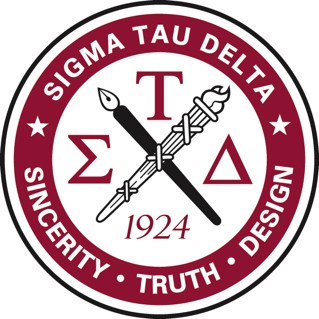
Why should you apply?
- Academic Recognition
- Scholarships
- Writing Awards
- Publication Opportunities
- Student Leadership and Community Service Opportunities
- Internships
- Annual Convention
- Lifetime Affiliation and Fellowship
Who’s eligible to apply?
Sophomores*, juniors and seniors at North Carolina Wesleyan University are eligible to apply for membership (*sophomores must have completed at least three semesters or five quarters of college coursework).
Candidates must:
- Complete at least three semesters of college work.
- Complete a minimum of two college courses in English Language or Literature beyond the requirements in First-Year Composition by the spring term of the application year.
- Have a minimum of a 3.0 (B) standing in English and a general GPA of 3.0 (B).
Candidates are NOT required to be English majors or minors to join Sigma Tau Delta.
Faculty members are also invited to apply!
Take advantage of this opportunity to share your love of literary studies with like-minded peers, participate in rewarding activities and be recognized for your accomplishments.
Interested? For more information, contact Faculty Sponsor, Dr. Margaret Love.
2024-2025 Application Cycle
Applications are accepted year-round.
Chapter Membership Application form and one-time lifetime enrollment fee of $45 must be submitted directly to the faculty sponsor, Dr. Margaret Love, in Pearsall Classroom Building (PCB) 172, by the deadline of February 15, 2025, or the application cannot be considered for Spring induction of new members.
Career Paths for English Majors
A degree in English prepares you to succeed in a multitude of fields. Today’s employers are looking for workers who can communicate information effectively to people from different backgrounds and cultures. Reading and analyzing literature teaches you to consider historical contexts and perspectives that you may not have otherwise encountered, which helps you navigate our increasingly complex, interconnected world. Writing and rhetoric courses introduce you to the essential genres of writing and elements of design, ensuring you will thrive in whatever position you choose to pursue. Journalism allows you utilize writing and research skills for local or national contexts and enables you to create professional pieces that are relevant to you and your community.
A recent study by the American Academy of Arts & Sciences, based on U.S. Census data and Gallup polling of workers nationwide, shows that English degree holders are not only gainfully employed and very often hold management positions, but that they have high career satisfaction throughout their lives. A degree in English will give you the intellectual flexibility necessary to adapt to complex social and professional environments.
Career Options
- Technical Writing
- Editing
- Publishing
- Creative Writing
- Copywriting
- Public Relations
- Advertising
- Marketing
- Journalism
- Education
- Business
- Law
- Government
- STEM
Wondering what you can do with a degree from NCWU’s Exercise Science major? Check out these resources from NCWU Career Development & Leadership and the Occupational Information Network (O*NET).
Wesleyan is dedicated to assisting students in their professional development offering resources and guidance for hands-on learning experiences through internships, assignments within the courses and job search resources. Let us help you focus on your education and career at the same time!
Don’t take our word for it... Our students speak for themselves!
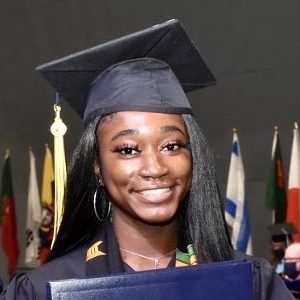
I thoroughly enjoyed studying at North Carolina Wesleyan University as an English major. The professors in the English Department were all so helpful, knowledgeable, and insightful. The English Department honestly felt like family to me.
With my English degree I was able to obtain a job and will soon begin my career as an underwriter for United Wholesale Mortgage. At first, I thought I needed a banking or finance degree, but for this position my English background serves well. English is such a broad area of study, and you can do a ton of things with an English degree!Chasadie Searcy, ’21
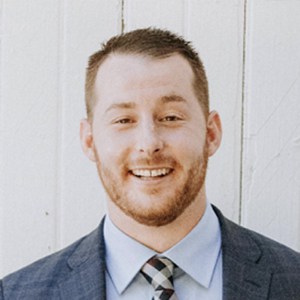
A degree in English allowed me the opportunity to become a middle school reading teacher. Through teaching I am able to impart my passion for reading and critical thinking on to the next generation, while also having the professional flexibility to pursue writing through freelance work. My time in the English department prepared me for several careers by sharpening my critical thinking skills, increasing my ability to communicate clearly to a diverse audience, and helping me develop a more robust understanding of different perspectives. The skills I developed while earning my English degree at NCWC have transferred perfectly into a career in education.Quinn Tobias, ‘18
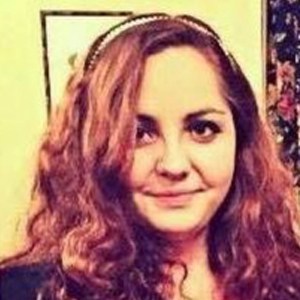
I work at J & J Editorial, a publishing company in Cary, NC, as a production assistant. I do anything from checking graphics that authors submit for their papers, to checking the papers themselves to make sure they meet all of our standard requirements. The specific journals I work on are for the Public Library of Science (PLoS), an Open Access online publisher, so I see some very interesting studies. The really awesome part of reviewing manuscripts for PLoS is that the studies we publish could make a huge difference in the world around us, especially medical studies.
I love working with authors and doing everything I can to make sure that there is a lot of communication and understanding about manuscript requirements so that authors’ manuscripts move through our production process as smoothly as possible, which makes authors and us very happy! I think the customer service aspect of my job is my favorite part because I love doing everything I can to answer authors’ questions as clearly and as timely as possible, so everyone is on the same page!Kaitlin Butler, ’18
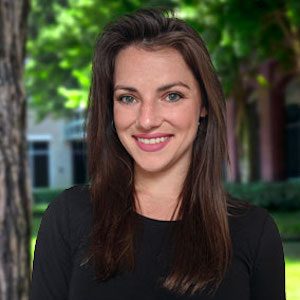
I graduated with a major in English and minors in journalism and art, and now use those skills as a Senior Social Media Strategist for a national agency. Learning how to communicate clearly and effectively to different audiences has given me the tools to work across a variety of industries – there is never a dull moment! The English Department faculty pushed me to develop and hone my copywriting, editing, and critical thinking; those skills now translate to my current work through the testing of various copy and creative variations, audience segments, and bid methods. The experiences I had at Wesleyan laid the foundation for my current work and now help me work with businesses of all sizes to increase revenue and hit target KPIs for their company goals.Emily Ugalde, ’14
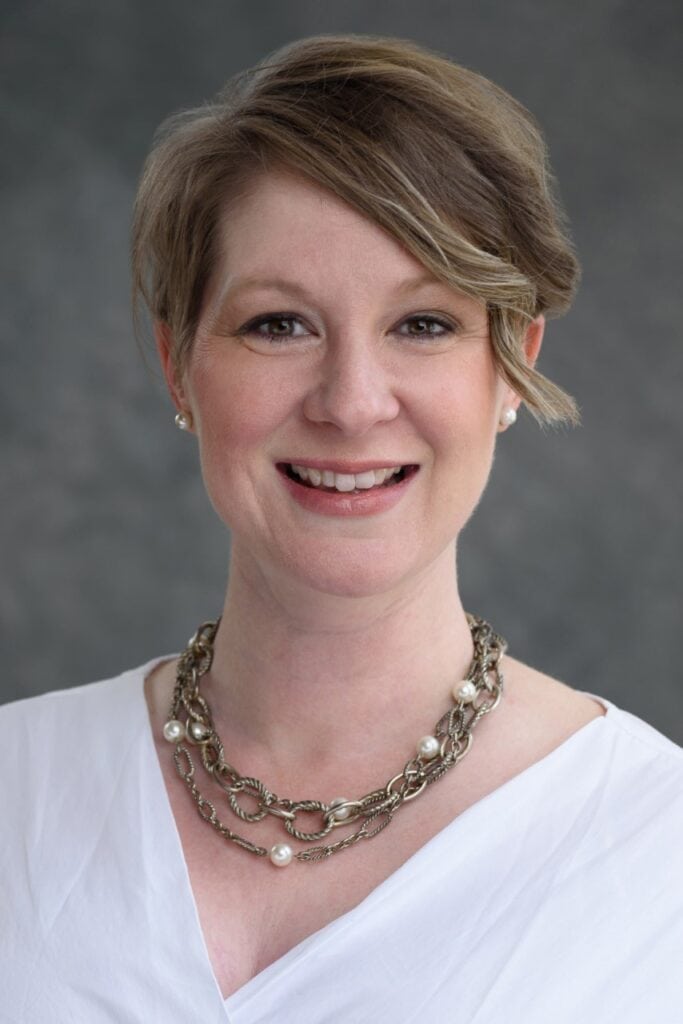
I remember my advisor saying to me that, with an English degree, ‘you can do anything.’ She wasn’t wrong! My degree from NC Wesleyan taught me to think critically, make sense of abstract ideas, and communicate effectively—all skills that are in high demand across the workforce. As a first-generation college student from a rural community, literature exposed me to a diversity of culture, thought, and belief that rivals experiences only available by traveling abroad. This exposure taught me to value and respect diverse perspectives and people, and to be culturally aware and responsive—more skills in high demand across the workforce. As a higher education administrator, I lean on these skills daily. They are integral to my work. My Wesleyan education prepared me for a Master’s in English and subsequently a Doctorate of Education in Higher Education Administration as well as my current career.Samantha Raynor, ’05
24/7 Tutoring Services. Free & Easy.
North Carolina Wesleyan University is partnered with Brainfuse, a complimentary online tutoring service, provided to all Wesleyan students. This service is available 24 hours a day, seven days a week and features live tutoring in the subjects of writing, reading, math, computer and technology, science and business.
Student Organizations
Be engaged at NCWU!
Choose from 30+ student-led clubs and organizations to connect with other students who share your academic interests or… create your own.
Transfer Articulation Agreements
To simplify the transfer process, NC Wesleyan University has a number of partnerships with other community colleges, universities and institutions that allow students to enroll at NCWU with simple pathways. These agreements outline the courses you should take to prepare for transferring to NCWU. Review the full list of transfer articulation agreements to see if your institution is listed.




